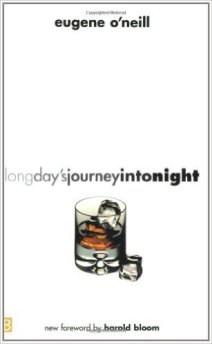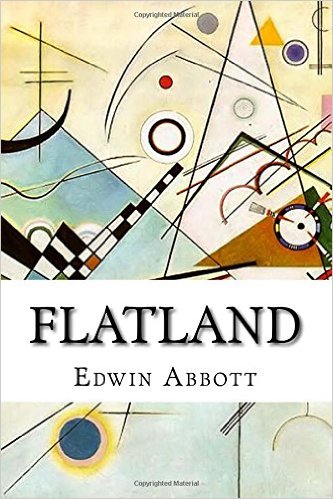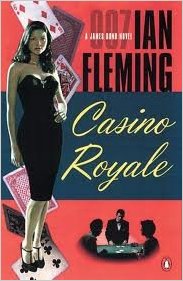As I mentioned in this post, I’m embarking on reading the Star Wars canon. The next installment is Lords of the Sith. Chronologically, this occurs just after the events of the film Revenge of the Sith. Anakin, now Darth Vader, has teamed up with Darth Sidious and is now flying around the galaxy shoring up the power of the newly formed Empire. But not everyone is ok with the Empire’s un-weakening grasp of power. On the planet of Ryloth, there’s a growing rebellion against the empire. Due to their determined rebellion, they have made it on the Emperor’s radar and he makes his way there to quell their rebelliousness. Fighting ensues.
 This was a too predictable read. Characters were saved from what should’ve been their death only so they could make it to the final showdown. From the beginning I could tell who was going to be saved for later and who was going to be thrown to the wolves, i.e. droids. It wasn’t good story telling. And while I know that the Emperor and Vader are super-Siths, there was just too much chaos for both of them to be so ho-hum about everything. But then it hit me; maybe they are the first hipsters. And if they are, does that make all true hipsters Sith lords? Or are they just cranky Jedi? I digress…
This was a too predictable read. Characters were saved from what should’ve been their death only so they could make it to the final showdown. From the beginning I could tell who was going to be saved for later and who was going to be thrown to the wolves, i.e. droids. It wasn’t good story telling. And while I know that the Emperor and Vader are super-Siths, there was just too much chaos for both of them to be so ho-hum about everything. But then it hit me; maybe they are the first hipsters. And if they are, does that make all true hipsters Sith lords? Or are they just cranky Jedi? I digress…
Then there was the martyr who was set up too early in the novel. I can’t use gender because it would give it away, but before you’re a quarter of the way through, you know to whom I’m referring. It was just a countdown before it happened. And as we drew nearer to the final show down, you knew what the outcome was going to be.
The world and the story were entertaining, but not as good as the previous novel in the series. Don’t set you’re expectations too high for this one.
 Menance (film), Attack of the Clones (film), and The Clone Wars (TV) all come before it. But the story picks up before Revenge of the Sith (film). I’ve seen the movies but not the tv series. Incidentally, I’ve now gone full bore and launched into the 6 seasons show. I may never find my way out of all of this. Back to the book. I wasn’t sure what to expect from this book. Maybe because I lowered my expectations that I liked it so much. I figured this wasn’t going to be a work of high literature, but I was looking for something was entertaining, world building, and with good, sincere character building. I didn’t want anything too pretentious. Luckily, that’s what this is.
Menance (film), Attack of the Clones (film), and The Clone Wars (TV) all come before it. But the story picks up before Revenge of the Sith (film). I’ve seen the movies but not the tv series. Incidentally, I’ve now gone full bore and launched into the 6 seasons show. I may never find my way out of all of this. Back to the book. I wasn’t sure what to expect from this book. Maybe because I lowered my expectations that I liked it so much. I figured this wasn’t going to be a work of high literature, but I was looking for something was entertaining, world building, and with good, sincere character building. I didn’t want anything too pretentious. Luckily, that’s what this is. plays we read was Eugen O’Neil’s Long Day’s Journey into Night. It broke me. It’s the story of one family’s intricate relationships complicated by one of the character’s addictions. What touched me the most was the complex relationship the character’s had with one another-the guilt, the anger, the frustration, the love. All of the layered emotions in each relationship felt very authentic. Too authentic. It was hard not to project the relationships I have with my family onto the characters.
plays we read was Eugen O’Neil’s Long Day’s Journey into Night. It broke me. It’s the story of one family’s intricate relationships complicated by one of the character’s addictions. What touched me the most was the complex relationship the character’s had with one another-the guilt, the anger, the frustration, the love. All of the layered emotions in each relationship felt very authentic. Too authentic. It was hard not to project the relationships I have with my family onto the characters. to me in a way that few films do. I couldn’t help identifying characters in my own family and extended family in the film’s cast. While the ending is vague, it’s not the completion of the journey, it’s the journey itself. I like endings that give proper denouement to the plot, but this time I didn’t care. I feel like the journey to the conclusion of the film was reward enough.
to me in a way that few films do. I couldn’t help identifying characters in my own family and extended family in the film’s cast. While the ending is vague, it’s not the completion of the journey, it’s the journey itself. I like endings that give proper denouement to the plot, but this time I didn’t care. I feel like the journey to the conclusion of the film was reward enough. dimensional world made up of shapes like circles, rectangles, squares, hexagons, etc. Each shape is part of a certain caste, e.g. women, soldiers, isosceles, gentlemen, and priests. There’s no real plot rather a collection of anecdotes that share daily life in Flatland.
dimensional world made up of shapes like circles, rectangles, squares, hexagons, etc. Each shape is part of a certain caste, e.g. women, soldiers, isosceles, gentlemen, and priests. There’s no real plot rather a collection of anecdotes that share daily life in Flatland. The other reason that I wanted to give Ian Fleming’s well known novels a chance is that I’ve recently identified why I come and go on things labeled “action”, like books and movies. I’m more into the whodunit, thriller, mind-bending action, e.g. Jason Bourne and James Bond, rather than the shoot ’em up and bombs a la John McLean and Jason Statham. Plus, Casino Royale was the first Bond film that I actually enjoyed and felt had a good story.
The other reason that I wanted to give Ian Fleming’s well known novels a chance is that I’ve recently identified why I come and go on things labeled “action”, like books and movies. I’m more into the whodunit, thriller, mind-bending action, e.g. Jason Bourne and James Bond, rather than the shoot ’em up and bombs a la John McLean and Jason Statham. Plus, Casino Royale was the first Bond film that I actually enjoyed and felt had a good story.